The Sound of Sirens: A Humanitarian Calling
https://chat.whatsapp.com/AmbulanceToday
An Interview with Saleem Al Qaimari, Palestine Red Crescent Society Volunteer
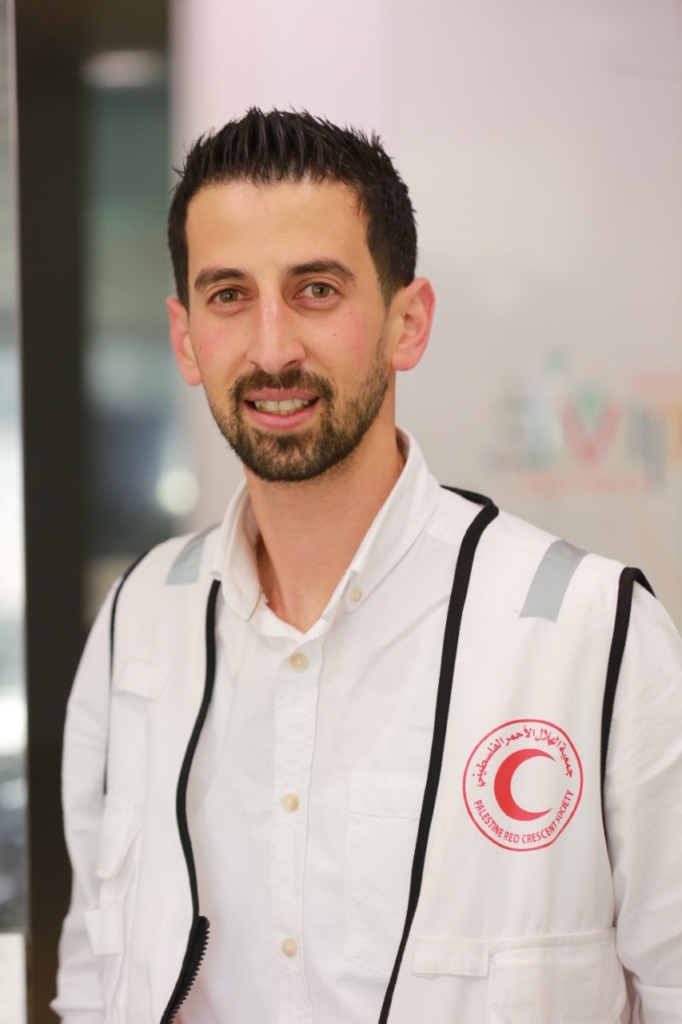
Published in Ambulance Today, Issue 4, Volume 13, Priceless EMS: The Volunteers At The Heart Of Prehospital Care, Winter 2019
EMS in Palestine is provided by the Palestine Red Crescent Society (PRCS) which was founded in 1968.
From its HQ in Ramallah it provides hospitals, primary health centres, disaster management services, psycho social support services, rehabilitation for people with disabilities services and EMS across the Gaza Strip and West Bank.
The PRCS was officially recognised as an active member by the International Committee of the Red Cross (ICRC) and the International Federation of Red Cross and Red Crescent Societies (IFRC) in June 2006.
For this edition, Ambulance Today proudly introduces the PRCS to its readers for the first time through the following interview with one of their volunteers, Saleem Al Qaimari, which gives a basic yet revealing idea of EMS in Palestine and the volunteers who provide it.
JOSEPH HENEGHAN: At what point in your life did you personally decide to become a paramedic in the first place? What led you to make this decision and to enter training?
SALEEM AL QAIMARI: When I was in high school I was so sick that my family called the ambulance to take me to the hospital.
When I saw the emergency medical team and their work, I became passionate about working and volunteering with them.
J.H: So, it was in this moment that you were drawn to working in EMS? Was there something in particular that you saw in the actions of those caring for you that ignited your wish to join the PRCS?
Saleem: Yes, when I was in the ambulance I saw how they treated me and how much they cared about my life so I decided to join them and be like them and save lives. I volunteered in 2007.
J.H: So what position did you start as and where are you now?
Saleem: I started as a volunteer at the PRCS in 2007 and from there I became an emergency medical technician in 2016 after a long intensive course of training and studying.
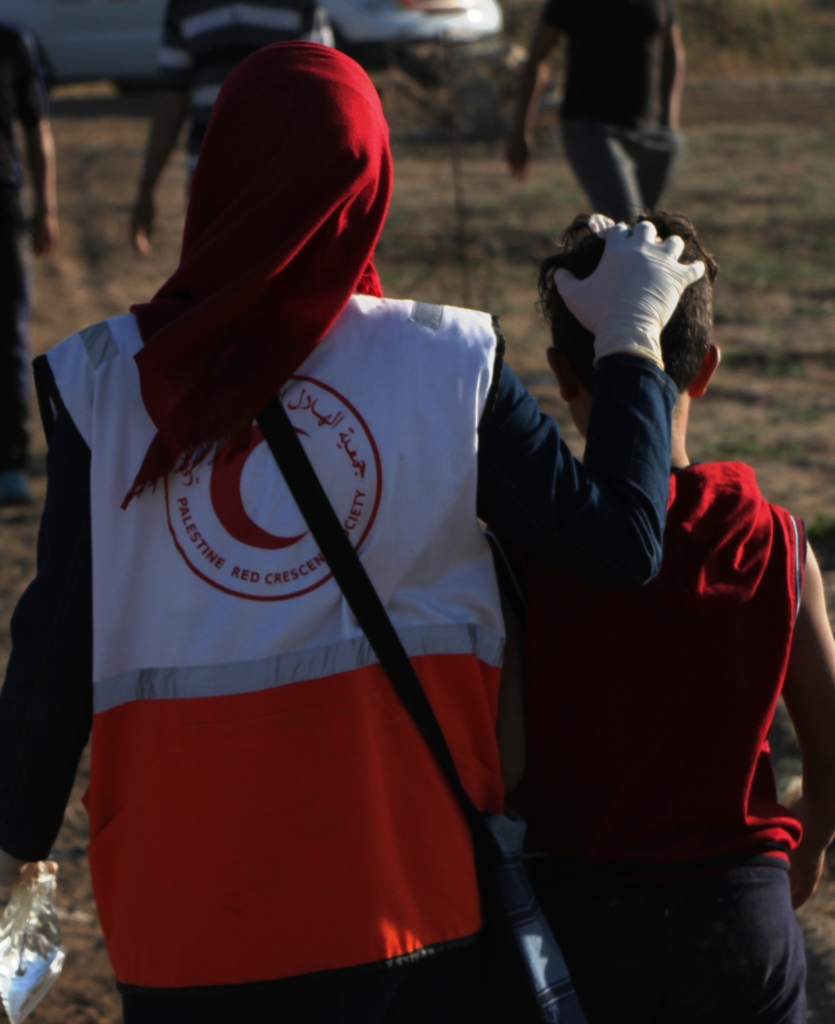
Front page image of Ambulance Today, Issue 4, Volume 13, Priceless EMS: The Volunteers At The Heart Of Prehospital Care, Winter 2019
Besides my voluntary work, I work at the public relations department in the Hebron branch of the PRCS.
In 2009 I also took part in the emergency medical team as a volunteer too.
J.H: And after 12 years of volunteering, how would you describe working for the PRCS? How does it feel, what do you personally get out of it?
Saleem: Humanitarian work is the most amazing work I have ever undertaken; actually it’s hard to explain how it feels when I deliver a humanitarian service to someone, especially a medical service.
I usually say that people who are involved in this work know exactly what I am talking about and how I feel.
This feeling makes me proud of myself and encourages me to do more and provide more services to any one in need, regardless of their nationality, colour, religion and political background.
J.H: That’s certainly a wonderful return for the voluntary work you provide to your community. Considering this, what would you say is the biggest barrier to you delivering emergency care on a day to day basis?
Saleem: There are many challenges; some are related to the lack of awareness among people in an emergency situation, for example they usually crowd around the patient or the injured when we are providing our first aid.
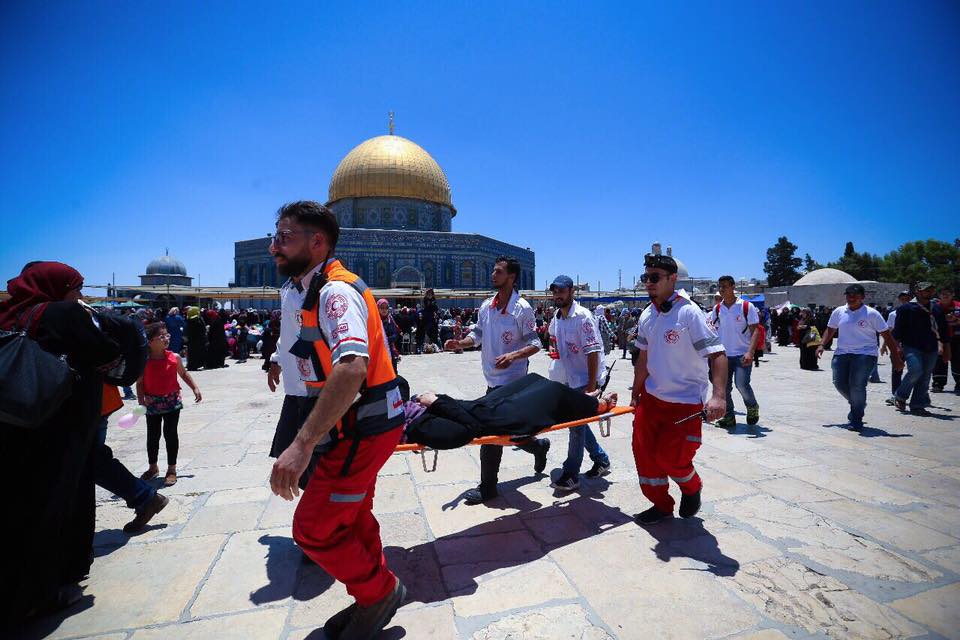
a pilgrimage for Ramadan
Other challenges are related to the occupation; in Hebron, especially in the old town, we always face the checkpoints and gates of the Israeli soldiers which take much time to be opened.
We usually coordinate with the ICRC to get the approval to go inside, which can take either a few minutes or sometimes several hours, even when we have to respond to a critical case.
My life has changed, all my attention and focus is on the humanitarian life more than my private life; when I hear the sound of an ambulance, and I’m not on duty in the centre, I call the dispatch and ask them if they need any help. I feel that the sound of the ambulance is calling me.
J.H: Whilst both obstacles you mention must be incredibly frustrating, problems at checkpoints must take quite some skill to professionally navigate. On a personal level, how do you keep a level head when faced these obstacles?
Saleem: My voluntary work in the EMS means saving the life of a person, so it does not matter who this person is. Also it’s a way for me to serve my own community and city.
J.H: I see. The duty is to provide care, and this determination see you through chaotic crowds and also potential problems at checkpoints. When it comes to an average shift, what does that look like for you in the region you serve?
Saleem: On a normal day, on the A shift, we have 2 ambulances and a team of 4 EMS staff and 2 EMS volunteers in the main EMS station. We deal with 8–14 different cases.
On the B Shift the workload lowers to 4–6 cases and C shift 3–4 cases. When we are not working, we chat about life or the cases we’ve dealt with, we cook together, or we watch TV.
J.H: And what is it like to work in your area of Palestine? How are you received by members of your community, especially when in uniform?
Saleem: PRCS is highly respected by the Palestinians because of the humanitarian role it is doing for vulnerable people, especially in times of emergency and mainly also because of the EMS we provide.
That is why we are well respected and accepted easily in our community and even by people of different nationalities.
When I am in my uniform, everyone greets me with a big smile on their faces as if to say, ‘oh you are doing great job and thank you for your efforts’.
J.H: And when you come home after a day of serving people in emergencies, offering them treatment and comfort, what is it that you find you are proudest of?
Saleem: My love and passion for my voluntary work has made me a person who doesn’t like to go home and have some rest.
The thing that I am really proud of is that I give humanitarian help for a people who really need it; when we perform CPR for someone and we restore their pulse and they breathe I say, “Yes, God gave me the strength and knowledge to help in giving this person another chance to live”.
My life has changed, all my attention and focus is on the humanitarian life more than my private life; when I hear the sound of an ambulance, and I’m not on duty in the centre, I call the dispatch and ask them if they need any help. I feel that the sound of the ambulance is calling me.
J.H: When something affects your life in ways as deep-seated as this, you must feel that a voluntary position within EMS has also added to you as a person, in terms of your own development and ability? If so, then how?
Saleem: It has given me more self-confidence, made me believe in my abilities and helped to refine my personality. It also made me believe that I can and I have the ability to make positive changes in my community.
J.H: So, as satisfied as you feel in your work, if you could just wave a magic wand and be granted a few wishes, what would they be?
Saleem: To have no checkpoints or electrical gates in Hebron and especially in the old city of Hebron.
To have more financial support to enable PRCS to operate more EMS centres in new areas and towns so as to help as many people as possible and quickly.
And finally, to spread first aid education further so as to save more lives and give first aid to people with even more speed and efficiency.
J.H: They all seem like valid and sensible wishes. We’ve touched on this a little bit already, but I was wondering about the feeling amongst you and your colleagues when working together. What is the general mood and feeling that runs amongst you all throughout the PRCS?
Saleem: Teamwork is the most wonderful thing in work. When we provide a service, the only thing we care about is the patient’s life and how we will save them.
This strong collaborating spirit among the team members helps us to achieve our goal, reducing the suffering of the people and saving lives.
J.H: Does the PRCS receive any aid from the PLO, or perhaps a less centralised political body within Palestine? Do you receive support from outside of Palestine at all?
Saleem: PRCS gets support from the Palestinian National Authority which represents the government in the oPT (Occupied Palestinian Territory).
That is not strange because other RCRC societies in the world receive financial support from their governments because of their auxiliary role to public authorities and bodies.
Since PRCS is the main provider of the EMS in the country (oPT), the needs of the people are huge due to our situation and therefore main partners from the RCRC movement supports us— mainly the ICRC.
JH: And do you feel that, as an emergency service offering vital humanitarian aid, you are given enough support politically from either inside or outside of Palestine?
Saleem: Unfortunately, politics affects our humanitarian work.
So, all that we want, from all political sides inside or outside the oPT, is to respect our emblem and our humanitarian mission and to facilitate our access to the people who need our help and not to jeopardise our life when we are in the field trying to save lives of people regardless of their nationality and religion.
J.H: Yes, this is indeed a deep area of discussion. As many of our readers will already know, the Red Cross and the Red Crescent are just two of four emblems belonging to the International Red Cross and Red Crescent Movement, and the protection of those carrying those emblems is a recognised and important part of the Geneva Conventions, alongside other international laws in place to protect those in areas of conflict as well as those delivering humanitarian aid.
In your estimation, what types of calls do you see the most from day-to-day?
Saleem: Injuries resulting from confrontation between Palestinian youth and the Israeli occupation forces, injuries from car accidents, and home cases (falling down, heart attacks etc.)
J.H: Do you think that preventative measures can be taken to lower the rates of these types of calls?
Saleem: Peace and an independent country, and more community first aid courses.
J.H: Throughout the creation of this latest edition of Ambulance Today, one question has been on my mind quite a lot: do you perceive any differences between those who undertake voluntary EMS as a vocation and those who serve in employed positions?
Saleem: Of course, from the professional side there is no difference because we all want to save lives and reduce the suffering of the patients or the injured.
However, at the emotional level, I personally feel different because it is not a job I’m paid for. What drives me as a volunteer is the will and the need to help whoever is suffering.
I can’t find words to exactly express my feelings; even in my own mother language it is hard to express my happiness when I save someone’s life who is a complete stranger to me.
This person is just a human who is suffering and is about to lose their life and I am there to help.
J.H: Yes, to be honest it is a very difficult question to answer, and I have struggled with clarifying some of the differences between paid roles and voluntary roles myself precisely because, as you say, in either role the deep-seated will to help those in need prevails across the board.
How do you find the time to devote yourself to helping others as a volunteer and to regular training etc. in between your other personal duties in life?
Saleem: People who work in EMS know exactly the importance of time and how they should take advantage of every second in the right way.
I organise my time in the best possible way so as to benefit of every moment; I take care of my obligations towards my family, I find time to finish two bachelor’s degrees, and I also make some time for my friends.
Well, I manage to organise my time but I have to confess that my voluntary work takes most of my time.
J.H: Well, I think I can already guess your answer to this but would you recommend volunteering in EMS to anyone else?
Saleem: I really recommend it. In this service, I have learnt how to appreciate life and time and that life is full of chances and we have to take the risk of benefiting from these chances.
It is like you must either take the risk or lose the chance; this is one of the lessons I took from my voluntary work in EMS.
Volunteering in general is a great thing; it gives you a chance to provide assistance to others and build your community and it builds your abilities in many aspects like leadership, teamwork, communication with different people and groups etc.
J.H: Is there any advice you would offer to hopeful volunteers then? A certain mantra or principle to keep in mind perhaps?
Saleem: Voluntary work is the basic meaning of life. It gives you the chance to give to affected and vulnerable people, like people with disabilities, sick people, or poor families.
Seeing the smile on their faces after being assisted by you is a smile you will never see unless you are a volunteer.
Life is hard and it has taken many things from many people (maybe a home, a family member, a person’s health) and we as volunteers are there to try to fill that gap and make their life easier and make them stronger to be able to face those difficulties that life offers.
Giving is priceless. Also, we have to understand that the real voluntary work is not about the period of time you volunteer, it’s more about the help and support you give to others.
J.H: Saleem, thank you for such honest, deep and thoughtful answers. I’m sure our readers will agree when I say that you have offered us a valuable insight into EMS in Palestine and the approach those working within it take towards their vocation. Keep up the exemplary work!
Quality content
- Casinos Not On Gamstop
- Casinos Not On Gamstop
- Casino Sites Not On Gamstop
- Non Gamstop Casino
- UK Online Casinos Not On Gamstop
- Casino Sites Not On Gamstop UK
- Casino Sites Not On Gamstop
- Games Not On Gamstop
- Sites Not On Gamstop
- UK Online Casinos Not On Gamstop
- Casino Not On Gamstop
- Slots Not On Gamstop
- Casino Not On Gamstop
- Gambling Not On Gamstop
- Casinos Not On Gamstop
- Non Gamstop Casino
- UK Online Casinos Not On Gamstop
- Casino Sites Not On Gamstop
- Best Betting Sites
- Best UK Online Casinos
- New Horse Racing Betting Sites

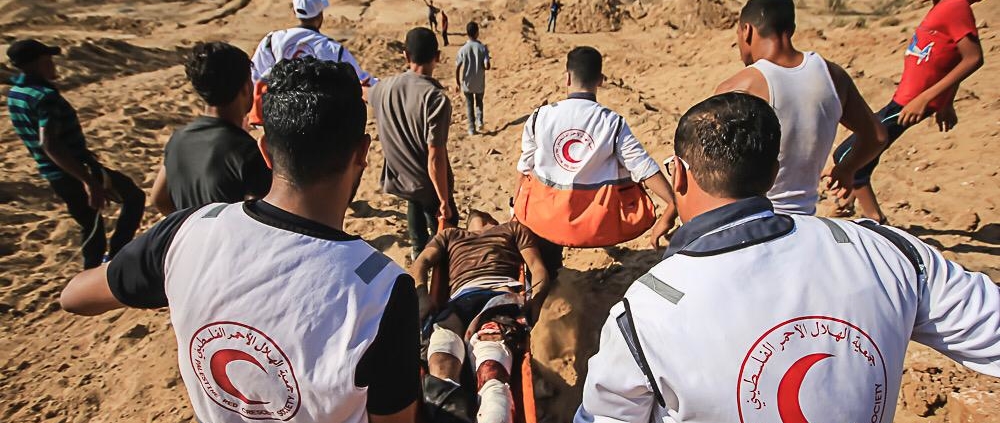
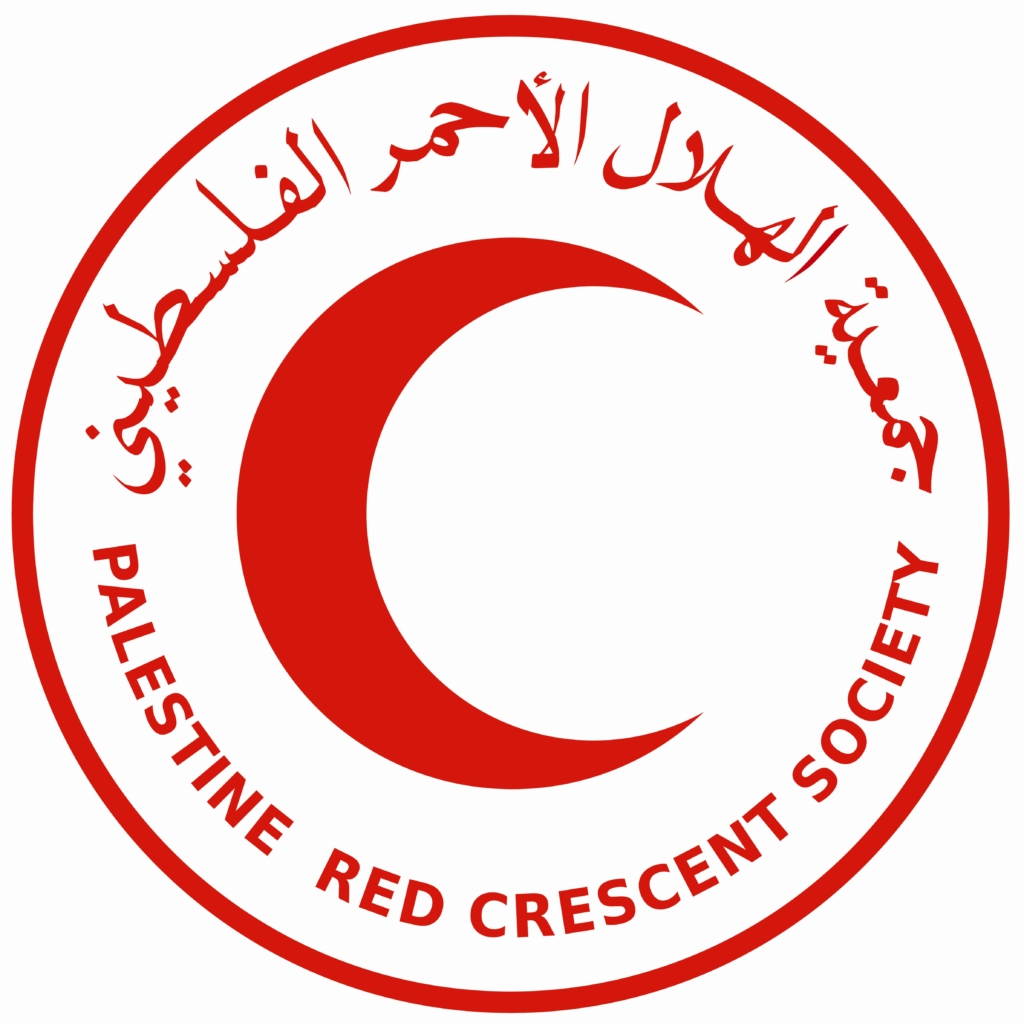
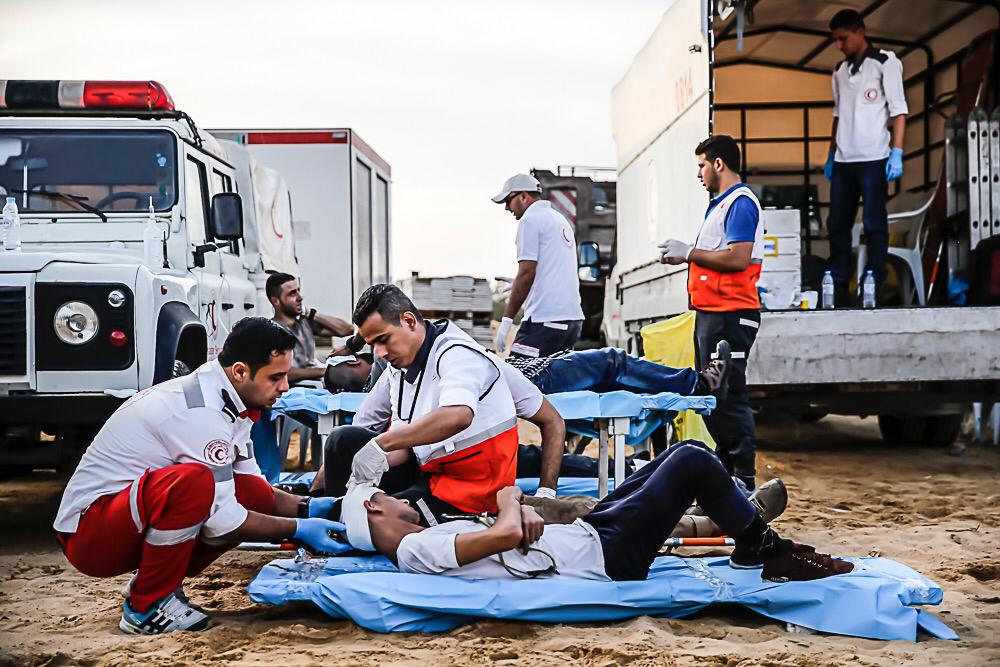
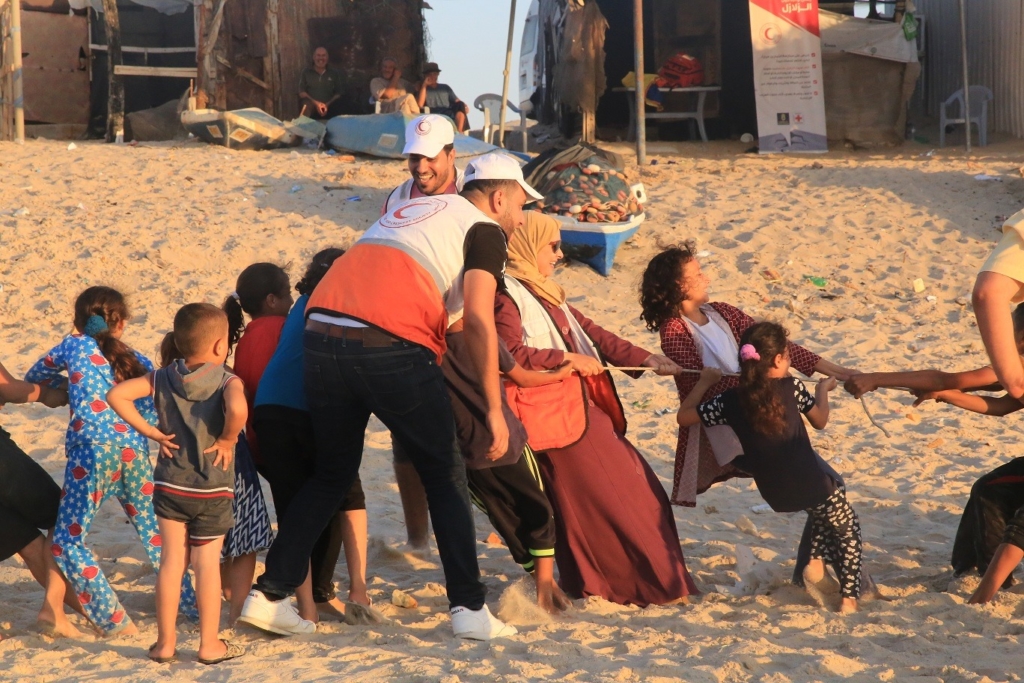
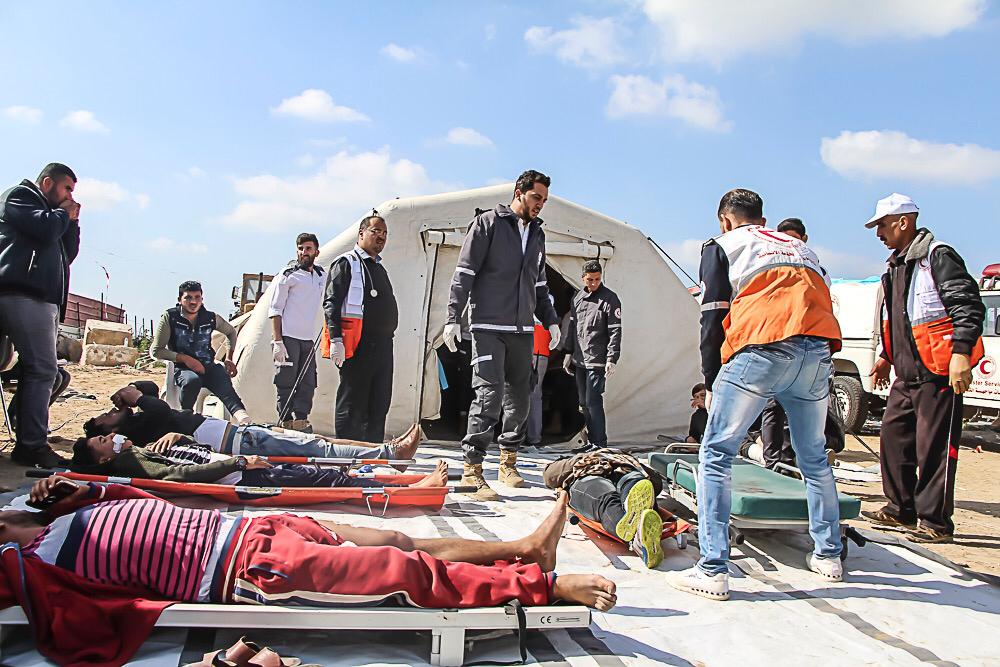
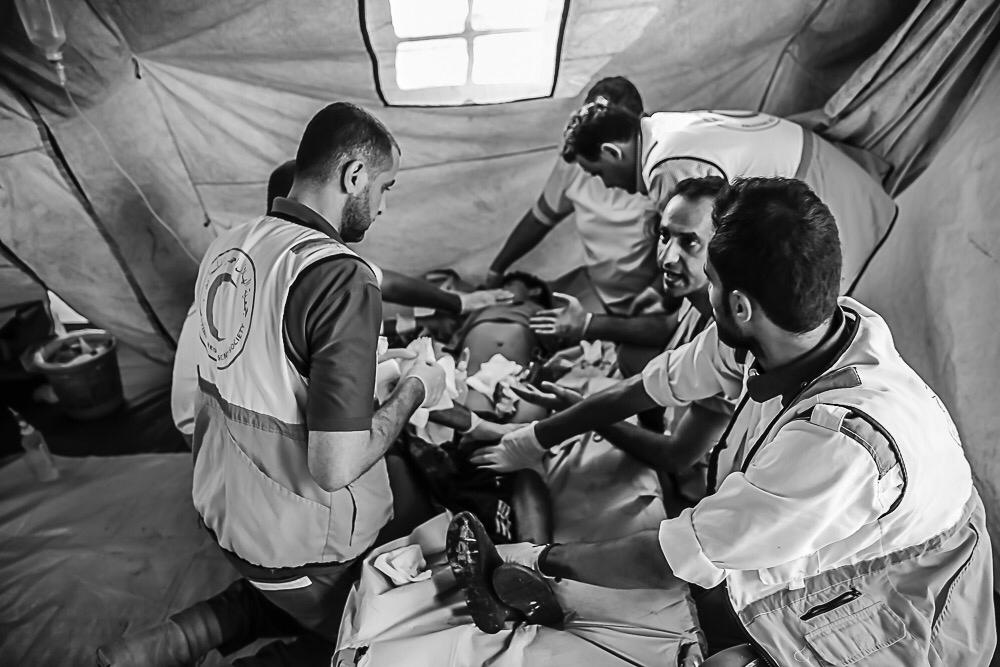
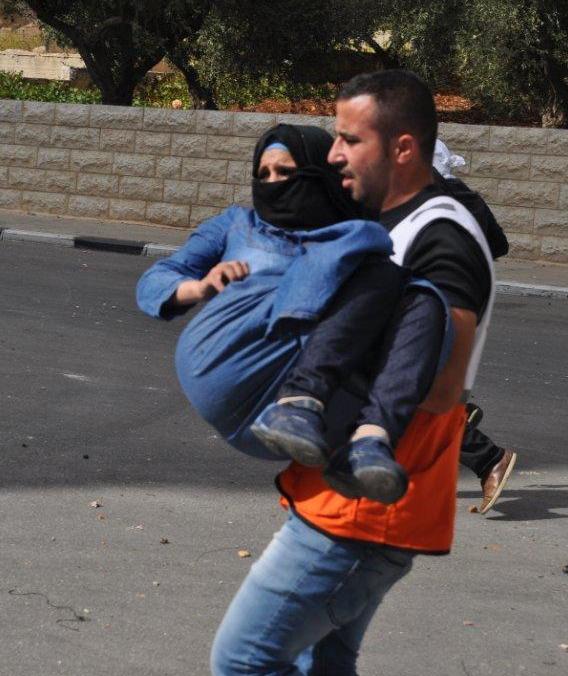
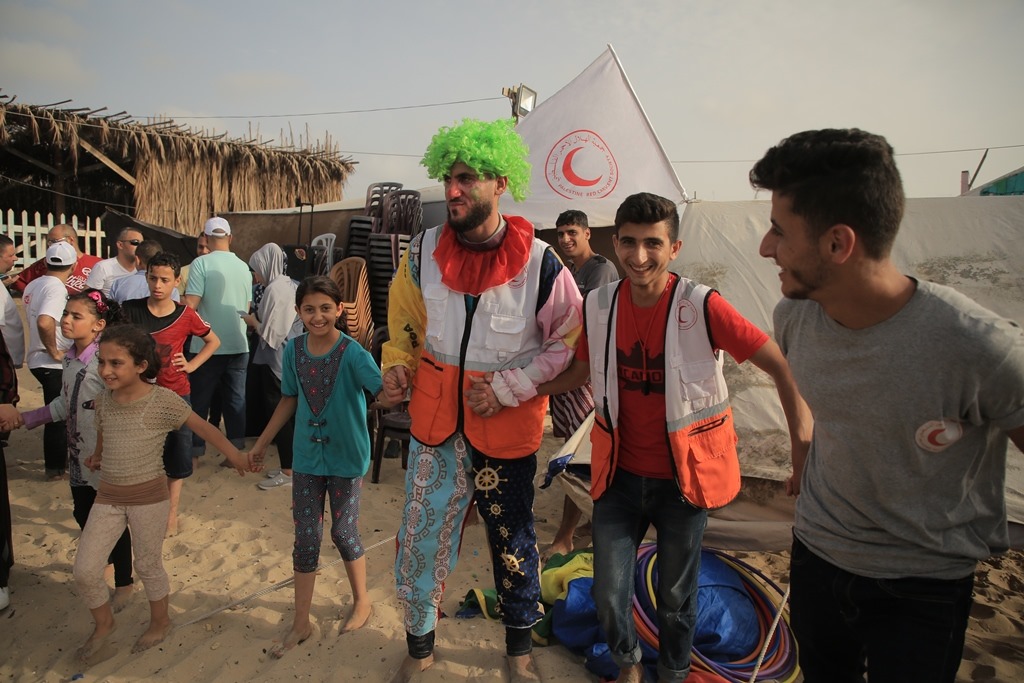
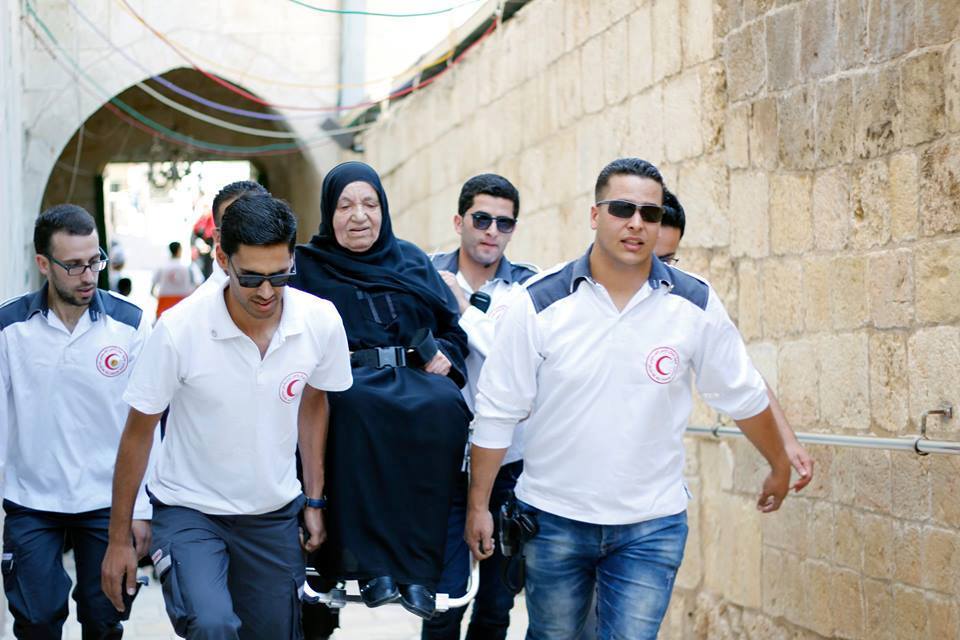
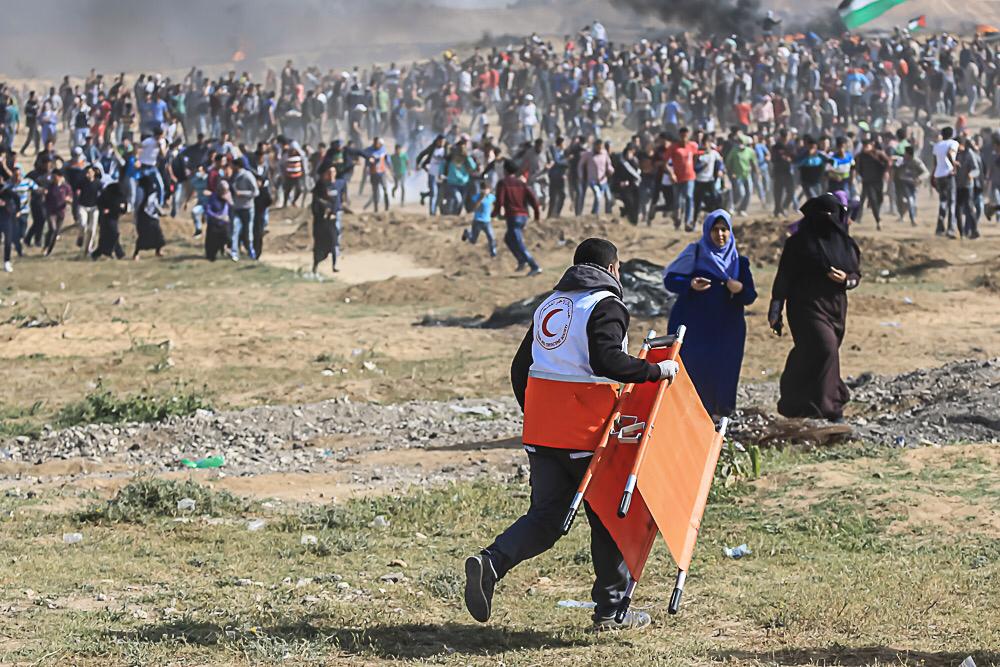
Leave a Reply
Want to join the discussion?Feel free to contribute!